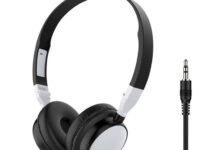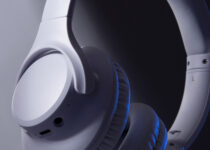Noise-canceling headphones are quiet — but they also have a quiet danger
Noise-canceling headphones have surged in popularity as a modern solution to the constant clamor of everyday life.
They promise a sanctuary of sound isolation, but are they as beneficial as they seem? Let’s delve into the intricacies of this technology and uncover the truth behind the myths.
The Appeal of Noise-Canceling Headphones
These headphones present an enticing prospect: the ability to block out unwanted noise, allowing you to immerse yourself fully in your chosen audio experience.
This feature is especially appealing in today’s bustling environments where distractions abound.
Myth Busting: The Safety of ANC
Contrary to popular belief, active noise canceling (ANC) technology is not inherently harmful to your ears.
While online forums echo concerns about potential side effects like ear pain and headaches, experts like David McAlpine offer a different perspective.
Understanding the Science
McAlpine, an authority in auditory research, clarifies that noise-canceling headphones primarily reduce the volume of external sounds reaching your ears.
This reduction can be beneficial, as it discourages users from raising audio levels to overpower background noise, a habit that can lead to hearing damage over time.
The Risks of Over-Reliance
However, excessive reliance on noise reduction can pose risks. McAlpine explains that the brain compensates for reduced external stimuli by amplifying its internal sensitivity, resulting in what he terms “listening loss.”
This phenomenon alters neural pathways, potentially impacting how we perceive and process sound.
Unnatural Silence and Brain Response
McAlpine draws parallels between the disorienting experience of total silence in an anechoic chamber and the use of ANC.

Both scenarios highlight the human brain’s discomfort with absolute quiet, emphasizing the importance of ambient sounds in our environment for orientation and well-being.
The Tinnitus Debate
While studies show that prolonged audio deprivation, such as wearing earplugs for extended periods, can induce temporary tinnitus, this condition typically resolves upon cessation of deprivation.
Therefore, concerns about noise-canceling headphones causing long-term tinnitus are largely unfounded.
Balancing Benefits and Drawbacks
In essence, noise-canceling headphones offer advantages in noisy settings, safeguarding against potential hearing damage.
However, continuous use at high noise reduction levels may alter how our brains process auditory information, underscoring the need for moderation and environmental awareness.
Dispelling Common Misconceptions
Two prevalent myths surround noise-canceling headphones: the notion that they are a panacea for noisy environments, perpetuated by tech giants, and the belief that ANC is inherently harmful.
These misconceptions stem from a lack of understanding of the technology’s nuances.
The Importance of Moderation
In a world inundated with noise, these headphones serve a valuable purpose. Yet, users must exercise caution and use them judiciously to avoid potential adverse effects on auditory perception.
Conclusion
Noise-canceling headphones are a double-edged sword, offering protection against noise-induced hearing issues while potentially altering how we process sound.
By striking a balance between their benefits and drawbacks, users can maximize their utility without compromising auditory health.



